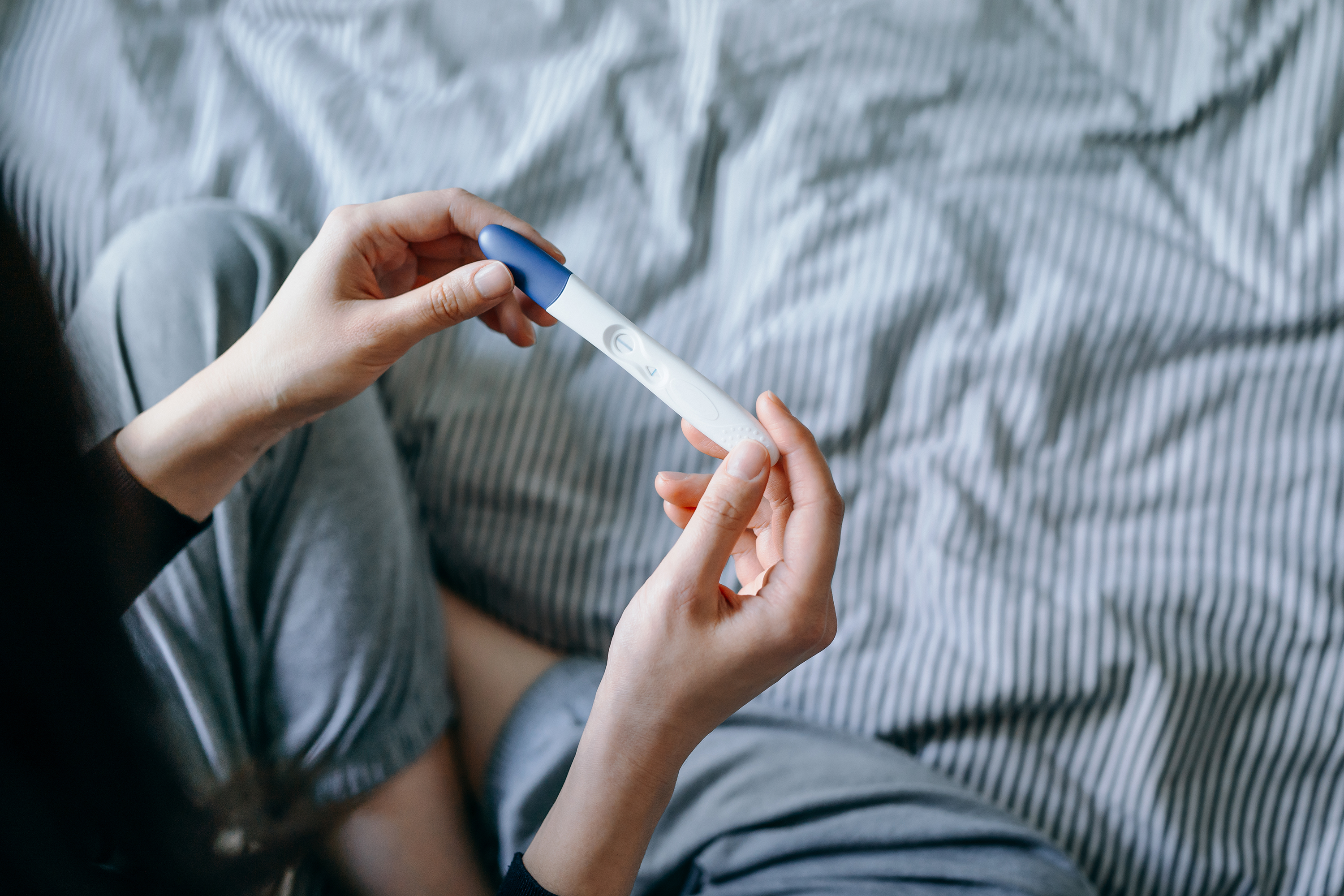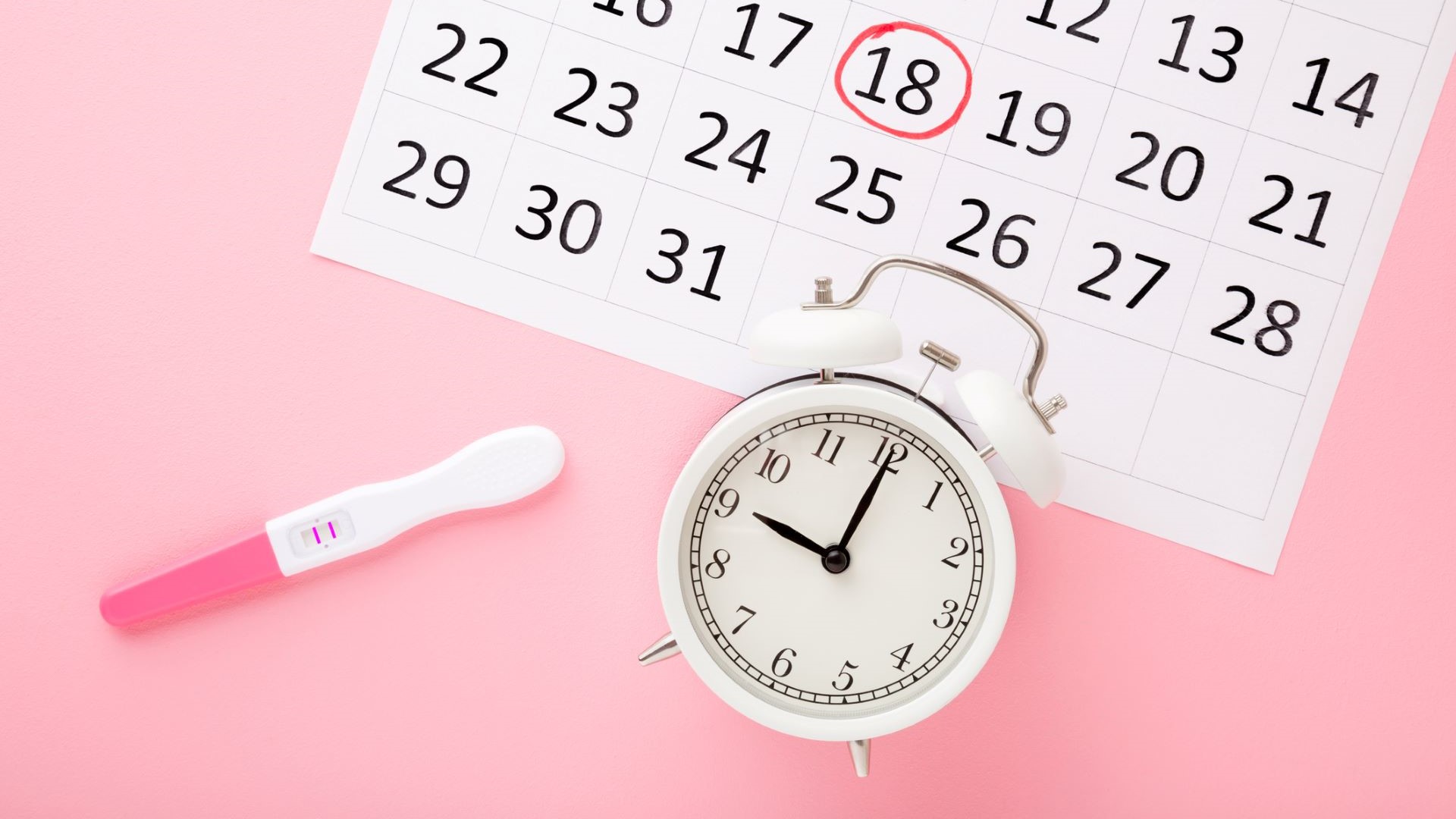Why can't I get pregnant? 10 possible reasons you're struggling to conceive
If you've been trying for a while but haven't had any success yet, read these 10 possible reasons you've having problems getting pregnant.


If you've been trying for a baby for a while and it's just not happening, you're probably asking 'why can't I get pregnant?'.
While the road to early pregnancy may be easy for some, it's certainly not the case for everyone. One in six people in the UK has trouble with conception, with issues ranging from simply missed ovulation windows to infertility.
And while there are a whole host of factors that can affect both female and male fertility, and so the chances of conceiving, many of them are easily identifiable and could be fixable with lifestyle changes and/or medical intervention.
Dr Anupa Nandi, Consultant Gynaecologist and Sub-specialist in reproductive medicine at The Lister Fertility Clinic, says that trouble conceiving might be down to just one factor - or multiple.
Try not to get too disheartened. As well as tracking your fertile window with our ovulation calculator - there is plenty you can do to increase fertility. These include trying fertility foods, giving fertility yoga a go, taking a folic acid supplement, and looking at ways to boost sperm count
Why can't I get pregnant?
1. Problems with ovulation
Ovulation, which is the release of an egg from the ovary into the fallopian tube, is one of the most vital processes for conception. Problems with ovulation, Dr Nandi says, are therefore one of the most common reasons for conception problems.
"Inconsistent ovulation, which can be due to polycystic ovarian syndrome, premature ovarian insufficiency or hormonal disbalance" are three of the most common ovulation problems people face. In fact, it counts for about 30-40% of all cases of infertility.
Signs of inconsistent ovulation, according to the NHS, including having irregular periods, no period at all or anovulation, otherwise known as abnormal bleeding.
GoodtoKnow Newsletter
Parenting advice, hot topics, best buys and family finance tips delivered straight to your inbox.
Even though you don't need to time sex around your ovulation cycle, it can be handy to keep an eye on when or if you are ovulating normally using an ovulation calculator. It can also help to have sex every other day or every three days throughout your cycle.
2. Blockage of the fallopian tubes
Dr Nandi says that in connection with ovulation, blockage of the Fallopian tubes, "which could be due to pelvic inflammatory disease, previous chlamydia infection or previous abdominal surgery", is another main issued faced by those struggling to get pregnant.
If your fallopian tubes have become blocked or scarred through these incidences, then surgery might be required to break up the scar tissue in the fallopian tubes, making it easier for eggs to pass through.
However, the success of this is very much dependent on the damage to the fallopian tubes and, following surgery, there can be some complications - including an ectopic pregnancy - so it's always important to fully understand the risks before undertaking any fertility procedures.
3. Existing issues with male fertility
While there are many issues with male fertility that can be sorted out through lifestyle changes, some are problems that men are born with. If it's a natural conception, there could be issues with a lacking or inadequate sperm count, reduced sperm motility or high abnormal forms of sperm.
"Most cases of abnormal semen parameters are unexplained, however in some cases it could be due to inherent defect in sperm production due to testicular damage or blockage in the outflow tract." Dr Nandi says, "Some men have difficulties in erection or ejaculation."
Whether or not this is the case, it's important to look after the quality of sperm when trying for baby. "I would strongly advise men to avoid testosterone supplements to build muscle. This can have detrimental effect on sperm production," Dr Nandi suggests.
"Any factors that can potentially increase the temperature of the scrotal area should be avoided as it can lead to DNA damage of the sperms, increase oxidative radicals. Research shows that even 1 degree centigrade rise in temperature can lead to 14% drop in sperm production. Prolonged sitting, driving, hot bath, saunas should be avoided."
4. Too much exercise
Too much exercise can be an issue for both men and women, our expert explains. For women, "too much exercise can be counterproductive as it can cause hypothalamic suppression leading to problems with ovulation."
And for men, "moderate-intensity exercise is good for sperm production but excessive exercise, such as bicycling for a long duration, can lead to the opposite effect."
While it's unlikely that exercising too much will be the sole cause of fertility problems, it's worth considering a general overhaul of lifestyle practices in the lead-up to conceiving, Dr. Nandi says.
"I would advise women and men to start doing lifestyle adjustments while trying for pregnancy. Taking care of all aspects of a healthy lifestyle such as diet, exercise, sleep, stress reduction and avoidance of risky substances (smoking, drugs, and alcohol) is of paramount importance. This will not only increase the chances of getting pregnant but also reduce pregnancy complications and improve the health of the unborn child."
5. Not getting enough vitamins and minerals
Part of the overhaul in the lead up to pregnancy should include a look at your diet, Dr. Nandi of Lister Fertility Clinic - which is a part of HCA Healthcare - advises. "Research shows that increasing intake of fruits and vegetables and reducing fast food increases chances of getting pregnant. In addition, you should take folic acid from at least a month before starting to try for pregnancy. If you have medical conditions or are taking medicine, you might need higher dose folic acid and hence you should consult with your GP."
But while it's essential to up the intake of certain vitamins and minerals, it's vital to stay away from some. "Avoid certain vitamins like vitamin A," she says as large amounts can harm an unborn baby. To this end, staying away from foods containing liver or liver products, such as pâté which is high in vitamin A, is also a good idea.
For men, it's important to avoid red meat, processed meat and full fat dairy as these have been associated with a lower sperm quality, while "a diet rich in omega-3 fatty acid, antioxidants (vitamin E, C, selenium, zinc, lycopene) is associated with better sperm production."
As with all changes to diet, speak to your GP if you're unsure about what which foods to eat during the conception process.
6. Being overweight
Particularly for women looking to conceive, being overweight can cause various issues - including:
- Hormonal imbalance
- Issues with ovulation
- Problems with menstruation
The closer a person is to a healthy BMI and weight, the better their chances are at conceiving. As noted though, it's important not to go too far the other way and do too much exercise or be underweight.
"Being overweight (BMI>30) or underweight (BMI <18) can lower your chances of getting pregnant. Regular mild to moderate exercise at least 30 minutes per day, which can be aerobic/ Pilates/ fertility yoga, will help you keep a healthy weight," Dr Nandi says.
Obesity in men can also cause issues with conception, such as problems maintaining an erection, a lower sperm count, hormone problems, and other health conditions linked to being overweight. Any man looking to lose weight in the lead-up to trying to conceive should do this about three months beforehand, according to Better Health, as this is roughly how long it takes to develop sperm.
7. Smoking and drinking
Most people know that in the lead-up to trying for a baby, it's important to minimise harmful substances in the body - this particularly includes smoking.
While it's fine to have up to three units of alcohol per week when trying to conceive, Dr. Nandi says that cigerettes are an absolute no-go - due to the impact smoking has on fertility. "Give up smoking completely while trying for pregnancy," she says, "as it can reduce sperm quantity and quality."
8. Not having enough sex
"Having sexual intercourse every other day in the fertile window, which is 6 days before ovulation, will increase chances of conception," Dr Nandi says.
According to one study, ovulation lasts for between 12 to 48 hours - but someone can be fertile for up to seven to ten days. This is because sperm can survive for up to five days in the female reproductive system.
Once released from the ovary, an egg can survive for up to 48 hours without fertilisation. This is considered to be the period of ovulation but the fertile window is the total amount of time the egg is fertile and how long sperm can wait for the egg in the reproductive system.
9. Unexplained problems
Unfortunately, sometimes fertility issues cannot be explained.
As Dr Nandi says, "Three to four out of 10 couples will not have any detectable cause for infertility in the standard tests and will be classed as ‘unexplained’. There can be various subtle factors causing infertility in them like problems in fertilisation or implantation, endometriosis, change in the quality of sperm or egg due to ageing, various lifestyle and environmental factors."
10. Undiagnosed medical conditions or medication side effects
Although these are some of the most common reasons for why someone can't get pregnant, it's certainly not all of them. Our expert warns that there are plenty more, including "various medical disease, effect of medications, rare genetic disorders" and other issues not relating to fertility at all.
If you have concerns about conception, pregnancy or anything in between, it's best to speak to your GP who will be able to best advise on the situation.
Related features:
- Early signs of pregnancy
- Ovulation calculator
- Best time to get pregnant
- Fertility foods to boost fertility
- I want a baby and he doesn't

Debra Waters is an experienced online editor and parenting writer. She also has a strong background on health, wellbeing, beauty, and food. She currently writes for Goodto and Woman&Home, and print publications Woman, Woman’s Own, and Woman’s Weekly. Debra has written for What to Expect, Everyday Health, and Time Out. In addition, she has had articles published in The Telegraph and The Big Issue.
-
 Fertility foods: 21 of the best foods for getting pregnant, according to a nutritionist
Fertility foods: 21 of the best foods for getting pregnant, according to a nutritionistMaking sure your diet is packed full of fertility food can improve your chances of getting pregnant. Here’s some of the best foods to eat
By Emily-Ann Elliott
-
 Ovulation Calculator: 33 day cycle when do I ovulate?
Ovulation Calculator: 33 day cycle when do I ovulate?Our easy-to-use ovulation calculator will help work out when you're most fertile.
By Stephanie Lowe
-
 How to increase sperm count: 15 scientifically-proven tips to boost male fertility
How to increase sperm count: 15 scientifically-proven tips to boost male fertilityBy Tannice Hemming
-
 How to increase fertility: 40 ways to boost your chances of getting pregnant
How to increase fertility: 40 ways to boost your chances of getting pregnantAre you trying to get pregnant? Here's how to increase fertility and boost your chances of getting pregnant.
By Debra Waters
-
 Fertility yoga: How doing yoga can help you to conceive
Fertility yoga: How doing yoga can help you to conceiveFertility yoga could help you conceive...
By Ali Horsfall
-
 When to get pregnant: the best time of year for a baby
When to get pregnant: the best time of year for a babyDid you know the season your child is born in can affect its health, as well as making a big impact on you and your health too?
By Jessica Dady
-
 How to get pregnant: 8 expert tips from fertility expert Larisa Corda
How to get pregnant: 8 expert tips from fertility expert Larisa CordaWondering how to get pregnant or are in the midst of trying? This Morning's fertility expert Dr Larisa Corda shares her top tips for boosting your chances of conceiving.
By Dr Larisa Corda
-
 What is the best age to have a baby?
What is the best age to have a baby?Take a look at pros and cons for each age group and decide for yourself...
By GoodtoKnow